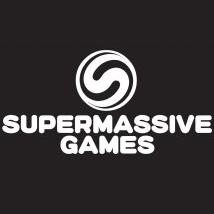On January 1, 2014, the United States Patent & Trademark Office released their latest fee schedule, and of note several fees have been reduced from their previous levels which should assist individual inventors and those able to qualify as a micro entity in containing their patent prosecution budgets.
Issue Fees
The new fee schedule reduces the issue fee required for an application to proceed to grant across the board regardless of entity size. Furthermore, the USPTO has eliminated the publication fee that accompanied the issue fee for all entities; previously the publication was a set price that was not eligible for reduction if individuals were either a small or micro entity.
In particular, the new schedule reduces the issue fees and publication fees as follows:
Micro Entity Small Entity Large Entity
OLD
Utility Issue Fee $445 $890 $1780
Publication Fee $300 $300 $300
Design Issue Fee $255 $510 $1020
NEW
Utility Issue Fee $240 $480
$960
Design Issue Fee $140 $280 $560
Publication Fee $0 $0 $0
Assignment Fees
The new schedule eliminates the previous $40 recordation fee for patent assignments if the assignments are recorded electronically with the USPTO.
Patent Cooperation Treaty Fees
Although the fees for submitting a PCT Application to enter the International National phase remain the same, applicants can now take advantage of being able to qualify as a Small Entity or a Micro Entity and be entitled to a reduction in certain fees as follows:
Micro Entity Small Entity Large Entity
OLD
Transmittal Fee N/A N/A $240
Search Fee (US) N/A N/A $2080
Prelim. Exam Fee N/A N/A $600
Suppl. Exam Fee N/A N/A $600
NEW
Transmittal Fee $60 $120 $240
Search Fee (US) $520 $1040 $2080
Prelim. Exam Fee $150 $300 $600
Suppl. Exam Fee $150 $300 $600
Summary
Overall, the reduction in fees offers some modest relief to all entities, however applicants that qualify as either Small or Micro should see the most benefit from these changes, especially given in the increases in overall fees at the USPTO the last several years. While much attention may focus on the decrease in issue fees, perhaps an overlooked and underappreciated aspect of the changes in the fee schedule relate to the applicability of small and micro entity rates for some PCT fees. Individual inventors, start-ups and small sized companies who maintain a modest budget for patent prosecution, and may have been previously dissuaded to submit a PCT Application, may now reconsider and look at filing such an application.


